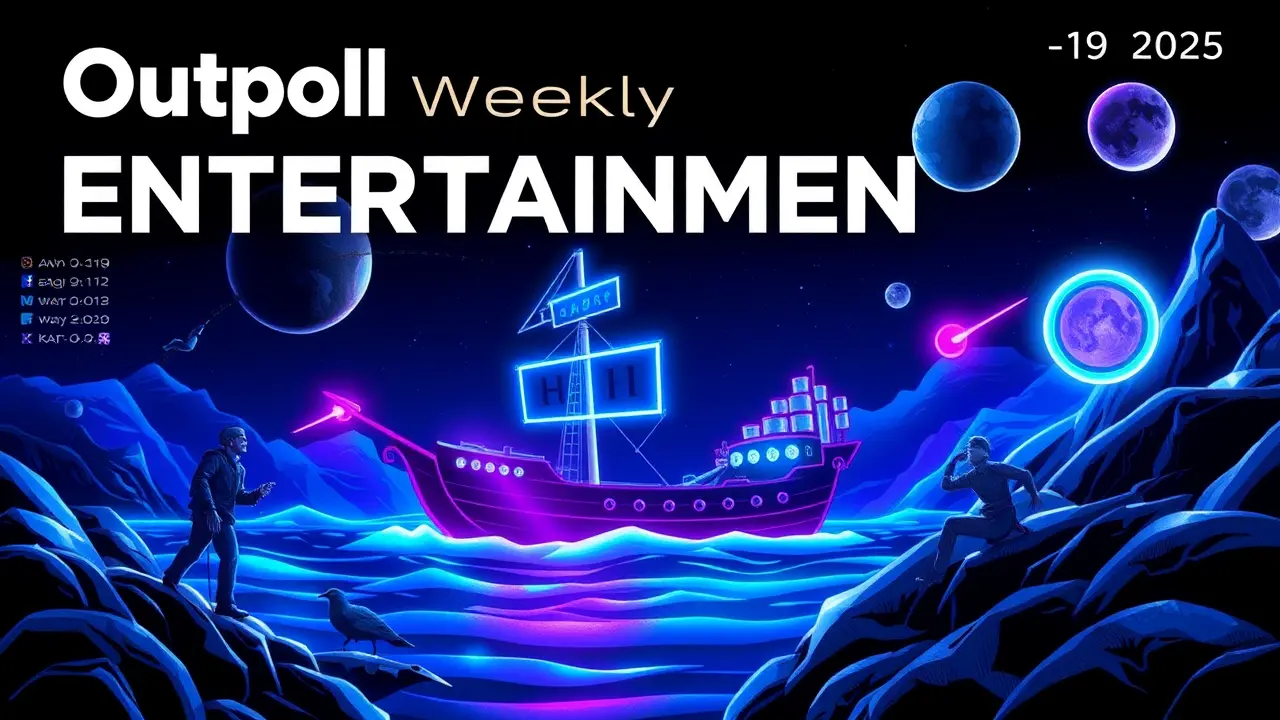
Entertainmenttv & streamingStreaming Platforms
New HDR Tech Aims to Improve Motion Smoothing Experience.
CH
Chris Walker
4 hours ago7 min read3 comments
The eternal gamer struggle against the dreaded 'soap opera effect' might finally be getting a next-gen patch, as new HDR tech is being engineered specifically to tackle the motion smoothing that makes your epic blockbuster look like a cheap daytime drama. You know the vibe—you just dropped serious cash on a top-tier OLED, fired up the latest cinematic masterpiece, and suddenly everything is so hyper-realistic and unnervingly smooth that it feels less like a movie and more like you're watching actors rehearse on a soundstage; it’s the visual equivalent of uncanny valley, and for years, the only fix was to dive into a labyrinth of TV settings to hunt down the 'motion interpolation' or 'TruMotion' toggle and nuke it from orbit, a process so annoying it’s become a rite of passage for any home theater enthusiast.But why does this happen? It all boils down to a fundamental mismatch between how traditional 24-frames-per-second film content is captured and how modern displays, with their blistering refresh rates of 120Hz or even 240Hz, operate; these TVs are designed to eliminate blur and judder, so they artificially generate and insert extra frames between the original ones to create a smoother picture, which is great for sports or gaming where clarity of motion is king, but it completely strips away the inherent cinematic texture and motion blur that directors painstakingly craft to give films their specific aesthetic and emotional weight. This new wave of HDR (High Dynamic Range) technology, however, isn't just about brighter brights and darker darks anymore; developers are now baking in more granular creator control and smarter metadata, like in the latest HDR10+ Adaptive and Dolby Vision IQ standards, which could allow the content itself to tell your TV exactly how to handle motion for each specific scene, effectively letting the director's intent override the TV's default brute-force processing.Imagine a system where an intense, slow-motion action sequence gets one treatment to preserve its dramatic impact, while a fast-paced car chase gets a different, smoother rendering to enhance clarity—all automatically, without you ever needing to touch the remote. This is a game-changer, literally, because it bridges the gap between the creative vision and the living room experience, moving us away from the one-size-fits-all approach that has plagued TVs for over a decade.The implications are huge, not just for cinephiles but for us gamers too; as the lines between interactive entertainment and film continue to blur with hyper-realistic graphics and in-engine cutscenes, having a display that can intelligently adapt its motion handling based on the content's source could eliminate those jarring transitions between gameplay and narrative sequences. Major players like Samsung, LG, and Sony are already investing heavily in this, seeing it as the next frontier in the display wars, a way to finally deliver on the true promise of 4K and 8K—not just more pixels, but smarter pixels.Of course, the success of this tech hinges on widespread adoption from both hardware manufacturers and content creators; if Netflix, Disney+, and the major film studios don't encode their streams with this sophisticated metadata, your fancy new TV won't have anything to listen to. It's a classic platform battle, reminiscent of the early days of HD DVD vs.Blu-ray, but the potential payoff is a future where the 'soap opera effect' is no longer a dirty secret of the home theater world, but a customizable feature you can engage or disengage with confidence, knowing that the art is being presented exactly as it was meant to be seen. For now, we're still in the early access phase of this tech, but mark my words, this is the kind of under-the-hood innovation that, once you experience it, you'll never want to go back—it’s the day-one patch our viewing experience has been desperately waiting for.
#editorial picks news
#HDR10+
#Dolby Vision
#motion smoothing
#soap opera effect
#creator control
#video technology
Stay Informed. Act Smarter.
Get weekly highlights, major headlines, and expert insights — then put your knowledge to work in our live prediction markets.
Related News
© 2025 Outpoll Service LTD. All rights reserved.



